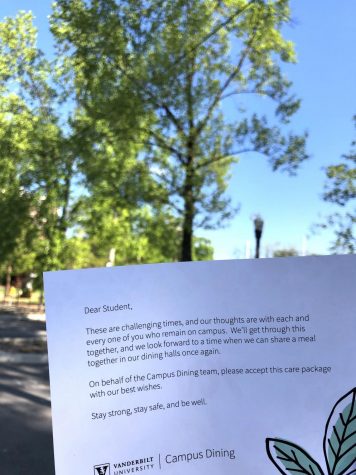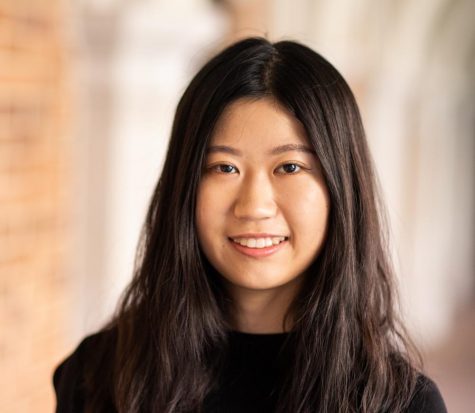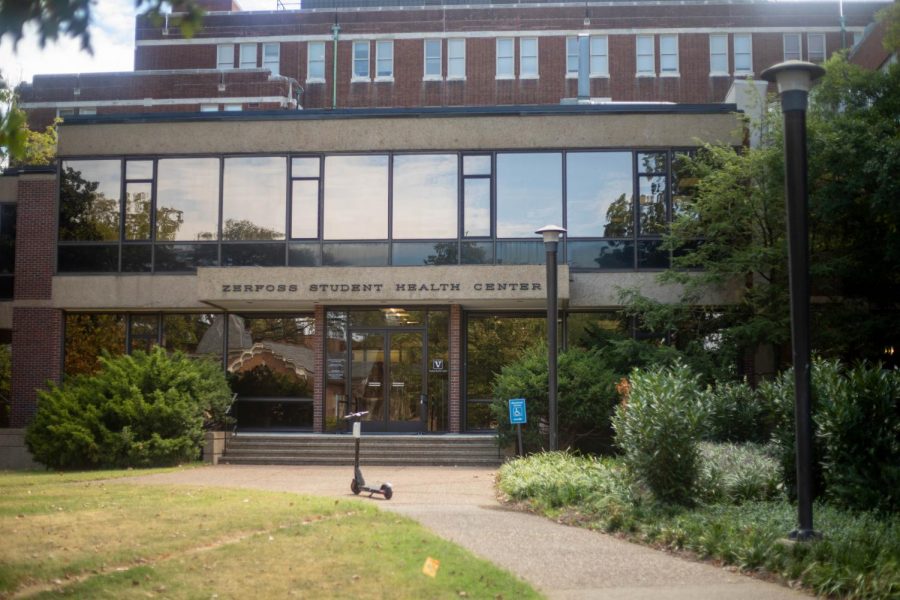While many domestic Vanderbilt students left campus the week following Spring Break due to the outbreak of COVID-19, not all international students were able to follow suit.
According to a June 12 email from the university, 115 students are living on campus with a majority of them being international.
Travel Concerns
Countries like the United States enacted travel bans to limit flights to slow disease progression. In addition, the Chinese government reduced international flights down to one flight per week per airline.
For Chinese international students like first-year Vincent Kang who are taking international flights between China and the United States, extra measures have to be taken in order to ensure a successful trip home.
“I bought about eight tickets to ensure at least one flight will not be canceled,” Kang said.
Other Chinese international students such as first-year Jamie Zhang, who is still living on campus, chose to stay in Nashville due to safety concerns surrounding the pandemic. Choosing to travel back to China would mean 13 hours on a plane and considerable time at a densely-populated airport, he said. These considerations increased his concern about contracting the disease.
“I know that for some international students traveling from the US to China, the trip to home can be as long as 30 hours,” Zhang said.
Vanderbilt continues to allow students to reside on campus and provides services like food delivery to those who remain. Students who remain on campus, like sophomore international student Selena Yao, say they appreciate the school’s efforts.
“It is a difficult time period for everyone. I really [applaud the] school for doing their best to support students living on campus,” Yao said. “Vanderbilt continuously provides food, housing and ensures a high standard of safety precautions.”
Distance Dining
Students staying in the US are ordering their meals through their phones or emails to minimize interpersonal contact. Campus Dining posts the daily menu options on their Instagram stories. Students are then able to order their breakfast, lunch and dinner one day in advance, with vegetarian and allergy-free options as part of the menu. The food arrives at a designated time, and students have 15 minutes to pick up their bagged meals, according to a March 24 email from the Dean of Students.
However, despite the effort, the university food delivery system can cause some confusion.
“Sometimes, even when we order food, for some reason, we don’t see it on the take-out table,” Kang said. “It might be [a] mistake of the delivery system, or it might be students who accidentally took the wrong bags.”
The university changed the system on March 24 so that Commons and Highland residents could have in-person food delivery, while students in other residence halls have dining staff members deliver bags of food on trays. Students would show Campus Dining staff their Commodore Card before receiving their meal, according to Kang.
“Even during the pandemic, the staff still go[es] out and work[s]. The school distributed care packages for everyone. There [was] a note that really warmed my heart, ” said Yao.

Yao took a photo of a letter from Campus Dining.
Social Distancing in New Dorms
With the Vanderbilt University Medical Center (VUMC) using campus residence halls to house medical staff because of COVID-19, OHARE (Office of Housing and Residential Experience) relocated some international students living in E. Bronson Ingram College, Murray House, Stambaugh House and West House to Highland Quadrangle.
Students are each assigned to an apartment, equipped with a private bath and kitchen. However, a small number of requests to share apartments have been approved, according to the university.
Yao said she moved from McGill to Highland in April. She said she appreciated clear instructions from the school and the staff helping to move belongings.
First-year international student Nancy Chen said she is grateful for her professors’ accommodations pertaining to study schedules. Chen also spoke about the difficulties of not seeing other students for weeks at a time.
“There are not a lot of people on campus. Life is kind of lonely without face-to-face communication,” Chen said. “But with social media like Zoom and WeChat, I can talk with friends and families. Their emotional support eased my stress and made me feel better.”







